With 2019 fast approaching, we cast our eye over some of the bakery stories that have hit the headlines over the past 12 months.
January
- Iceland pledged to swap plastic packaging across its own-label bakery lines for paper-based material. It announced it would eliminate all plastic packaging from its own-brand products by the end of 2023. In the case of bakery goods, the retailer said it would look to use a paper-compatible material, such as cellulose, in place of plastic for products where shoppers needed to see what they were buying.
- The Real Bread Campaign published a guide to help small bakeries reduce the number of surplus loaves they produced. Among other things, No Loaf Lost, addressed where, when and why surplus arose, ways to minimise mismatches between production and sales, reasons to slice surplus, what to do with surplus loaves and how to communicate with staff and customers.
- Bakery businesses ramped up activity encouraging customers to have their drinks in reusable cups. The previous month Patisserie Valerie owner Patisserie Holdings introduced a 50p discount for customers who ordered a takeaway drink and brought their own reusable cup. Pret A Manger doubled its cup discount to 50p, and Paul UK increased its discount from 10p to 25p.
- Stephens opened what it claimed is UK’s first drive-through independent bakery site – and first drive-through bakery in Scotland - in Dunfermline.
February
- Pudding firm The Ultimate Food Company entered administration after trading for more than 30 years. All 20 employees of the Kendal-based business were made redundant.
- Greencore sold its cakes and desserts business in Hull to Bright Blue Foods. The sale marked Greencore’s exit from the UK cakes and desserts sector and coincided with the closure of its desserts facility in Evercreech, Somerset.
- Tesco reduced the sugar content of its jam-filled, custard-filled and sugared large ring doughnuts. Milk replaced egg in the recipe as part of the sugar-cutting process, which meant they were no longer dairy-free.
- Carbs were reported as being back in fashion, with Argos citing a 106% increase in online searches for bread-makers compared to the previous year, while sales of spiralisers for making courgette spaghetti had fallen 65%.
- Scottish biscuits suppler Border switched from a seven-day week to a five-day one under a new production schedule. The business, which at the time of writing has a £16.5m turnover, said the revamped production schedule gave its 150 members of staff weekends off and a better work-life balance.
March
- Marks & Spencer, Asda and Waitrose enjoyed booming sales of sourdough loaves. Demand at M&S almost doubled year on year at 98%, Asda saw sales rise 50%, while sales of sourdough loaves at Waitrose jumped by a third, the retailers said. Tesco also revealed that demand for its hard-crusted, rustic-style bread soared by nearly 40% over the previous year.
- Violet Bakery owner Claire Ptak, was named as the baker who would produce Prince Harry and Meghan Markle’s wedding cake. To meet the “bright flavours of spring” brief, the cake would go on to be a lemon and elderflower creation, covered in buttercream, crowned with icing pearls and decorated with fresh flowers.
- Public Health England (PHE) called on businesses to slash 20% from the calorie content of certain foods – including many baked goods – by 2024. Sandwiches, pizza, savoury biscuits, bread ‘with additions’ (such as ciabatta with olives), pies and pastries were among products targeted by PHE in a bid to tackle obesity, which it said cost the NHS £6bn each year.
- Signature Flatbreads bought out its joint venture partner Aryzta. The Eid family, which had set up the business that became Signature more than 30 years earlier, bought out Aryzta’s shareholding to become the owners of Signature Flatbreads.






















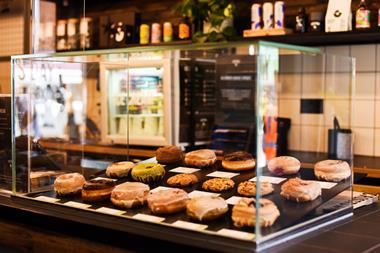
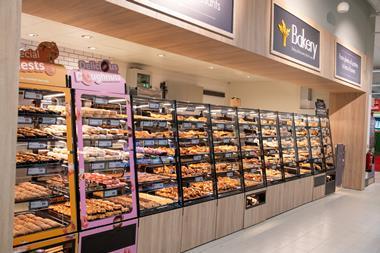
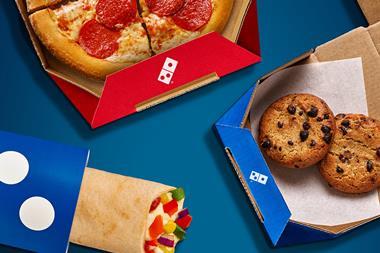
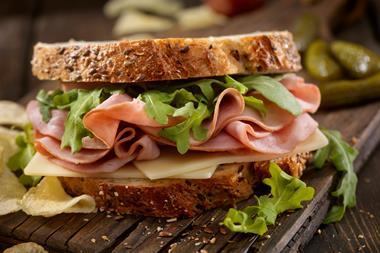
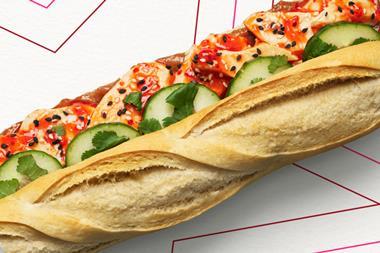
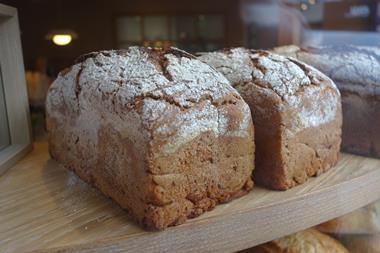







No comments yet